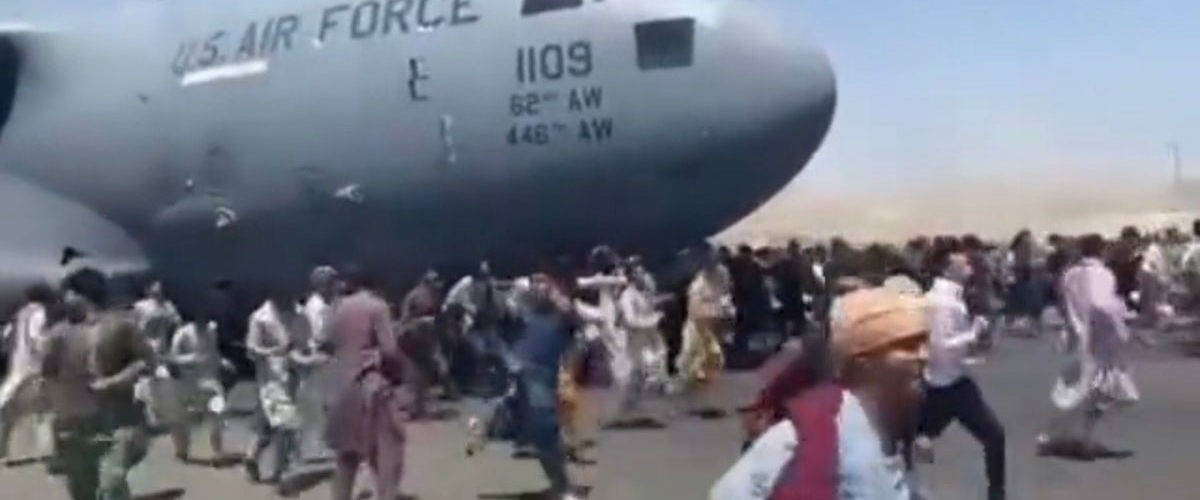If you’re looking for someone to blame for the gut-wrenching situation and images coming out of Afghanistan right now, look no further than me.
I’m one of the vast majority of Americans who, on Sept. 12, 2001, believed the only way to enact justice for what occurred the day before was through retributive violence and nation-building. I’m one of the vast majority of Americans who believed the only way to support our troops was to either blindly support, or turn a blind eye, to the decisions of their commanders in chief.

Craig Nash
Presidents, those who want to be reelected anyway, don’t make decisions that are widely unpopular. They may have other reasons for their decisions than what is popular, but if more than 70% of people are against a move, they’ll find ways to suppress those other reasons.
In the George W. Bush years, it was the popular belief that we needed to “put a boot in their ass” in 2001, so that’s what we did. In the Obama years, the country was split on what we needed to do, so his response was reflectively shaky and unsteady. By the time Trump and Biden came along, it was the sentiment among the majority that it was time to pull out, and those are the decisions they made. They all did what we (read: I) wanted them to do, and every decision along the way was a mistake.
Also, at every step along the way, especially in the beginning, there were voices crying in the wilderness pointing us to more creative, imaginative solutions to the Cain and Abel story. I called them crazy, idealists, and said things like, “Well, what you are saying sounds good in theory, but this is the real world we are dealing with.”
There were so few of them. (No U.S. senator and only one U.S. Congressperson voted against the Authorization for Use of Force, which reflected the sentiment of the country at the time.) But they were right, and we were wrong.
I was wrong.
Let this be a lesson for us to find a better way. The next time a Sept. 11 happens, may our memories be long.
“The next time a Sept. 11 happens, may our memories be long.”
And the truth is, we don’t have to look far to find people doing the difficult work of non-violent peacemaking. I’m thinking of the Preemptive Love Coalition, which follows the principle that “Fear leads to violence, and violence leads to war, but preemptive love unmasks violence.”
I’m thinking of the United Nations World Food Program, which received the Nobel Peace Prize in 2020 for their negotiations in war-torn regions for food assistance to make it across battle lines.
I’m thinking of how some of the most enduring images and stories of American soldiers aren’t of sniper fire or IEDs, but of playing soccer with neighborhood kids.
I’m thinking of Jesus and Martin Luther King Jr. and John Lewis, who all knew that the cost of nonviolence was great, but not near as great as the cost of reciprocation.
“The ways of nonviolence may look foolish to those on the outside of the crowd listening to Jesus give the Sermon on the Mount.”
Humanitarian assistance. Diplomacy. Setting examples and making peace the most attractive option for violent people. There are so many better ways.
The ways of nonviolence may look foolish to those on the outside of the crowd listening to Jesus give the Sermon on the Mount. But the “foolishness of God is wiser than human wisdom,” and the weakness of God is greater than human strength.” (1 Corinthians 1:25) May we repent and follow the foolishness and weakness of God into a better way.
Craig Nash lives in Waco, Texas, and works for the Baylor Collaborative on Hunger and Poverty. He is a graduate of East Texas Baptist University and Baylor’s George W. Truett Theological Seminary. He is active in the life of University Baptist Church in Waco.
Related articles:
Will U.S. departure from Afghanistan create a humanitarian and religious freedom crisis?
Reflecting on the effects of 9/11 and the disarray of America foreign policy | Opinion by David Gushee
Afghanistan: A tragic example of an unjust war | Analysis by Chris Conley


